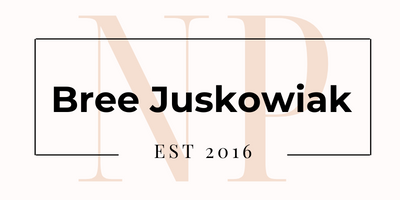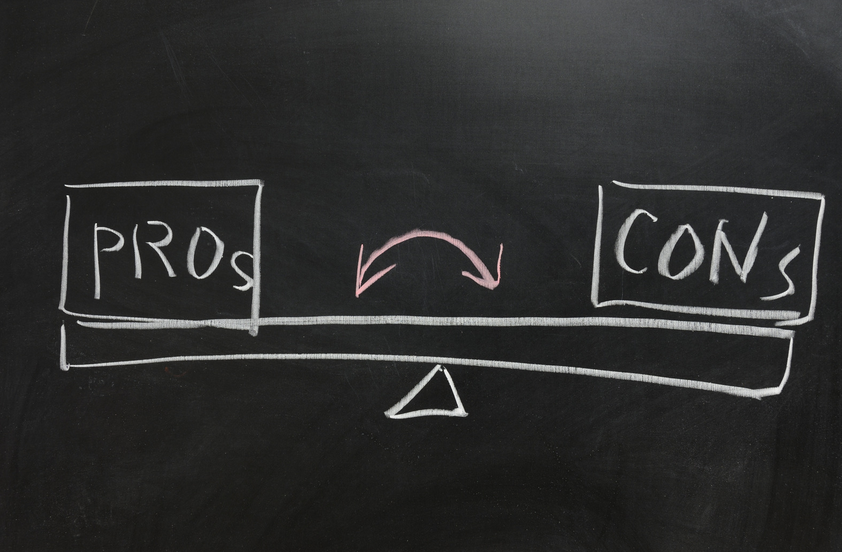The Worst Parts Of Being An NP
My number one most viewed youtube video is about the downsides to practicing as a nurse practitioner. I guess I shouldn’t be surprised by that. You want to know what the cons are before diving head first into uncharted waters. It’s a great illustration about how life mimics art. My craft is working as a critical care nurse practitioner and informed decision making is a huge piece of making life and death decisions. As long as the patient and family is aware of the risk/benefit and I do my job well in explaining it to them, we can all go forward with realistic expectations. Same should be true about making a big life decision like going back to school. Since very little in life is all good, anticipating the challenges/cons to this career tract is everything. In this blog post I’ll discuss the biggest bummers to daily life as a nurse practitioner. If you are in a season of deciding on nurse practitioner school, this one is for you.
Don't Forget To Join The Livestream This Thursday
〰️
Click Here
〰️
Don't Forget To Join The Livestream This Thursday 〰️ Click Here 〰️
Narrowed Focus = Less Mobility
While your scope is expanded, the patient population and focus you can care for is significantly narrowed. As a nurse the world is your oyster. You can pick any specialty, sub-specialty, practice setting, population focus you want. As long as the job posting says RN, you’re good. Job hop to your heart’s content. Getting frustrated where you’re at - try something 180 degrees different and see how you like that. Signed on to a job that has a toxic manager - go five miles down the road to a different organization doing the same thing. There is limitless lateral mobility as a registered nurse.
Working as a nurse practitioner does not offer this same flexibility. Since you are advancing your practice you have to narrow your focus in order to avoid a decade of school. If you picked acute care you are not going to learn about primary care, very little about women’s health, childbirth, pediatrics, psychiatrics, etc. The problem with this is that you have to choose where you want to focus before you go back to school. This is a hard concept to accept as we have mostly all been used to life as an RN with all that flexibility. Commitment is hard for us. On top of that, despite the fact that NP schools are pumping out new grads faster than condiment factories produce ketchup bottles, many RNs are not exposed to NPs in practice and are therefore unaware of the career path options. I know many, many NP’s who have more than one certification because they got out, didn’t like their practice focus in real life and then went back for another certification.
Market Saturation = Fewer Job Options
I chose this term saturation with intention. I hate this word and all the emotions it conveys. It also doesn’t reflect reality IMO. I chose to use it anyway because I think this is the term y’all are most used to hearing and using. I talk to an average of 30-40 NP’s (from across the country) a year in my consultation business. I prowl the NP forums constantly. So I share this information with confidence that what I say reflects what the market truly represents. Hear my words friends: there are places in this country that are desperate for providers. Places where students are getting offers before they graduate; where they are getting multiple offers. These are typically the less populated, more rural areas. If you do a market analysis in a populated/desirable city you will likely find the opposite - very few jobs posted and less competitive pay. So I believe we have a geographic distribution saturation issue. If you are serious about being an NP you will find a job. Hand to God, every single NP I have coached in interview skills got a job. NP’s are getting jobs.
Having said all that, do I believe we are pumping out too many NP’s - YES. This is a whole side bar that I will spare you here, but the salient point is that there are a lot of NPs in the world looking for jobs. So the laws of supply and demand are in play. As a nurse you are used to walking in to pretty much any job you want. Not so with the NP thing. Especially for new grads.
Credentialing Timeline + Less Job Availability = You Are More Stuck
Because of both of the aforementioned issues + a long timeframe to start a new job (~6months) it is harder to find and start a new job. That lateral mobility thing I talked about in the beginning, yeah, that is something you give up as a nurse practitioner. Switching jobs comes with a LOT of contemplation and effort. You must have a good plan in place for changing jobs. Unlike nursing where you can walk into something new 2 weeks later. You’re looking at six months to a year as an NP. Which means when workplace stressors develop, you are more likely to work through them than jump ship. Which is why some nurse practitioners find themselves stuck in toxic work environments.
Mid-Level Status + Smaller Workforce = Fewer Colleagues
Mid-level is not the offensive term some have claimed it has become. At least in my mind, it’s actually a good representation of who we are. We are not physicians, nor are we nurses any more. Yes, we will always be a nurse at our core, but we are working far more closely to a manner similar to physicians than nurses. We ride the line in between two specialties, in the middle if you will, which I think is kinda cool actually. But the downside is that you won’t have many colleagues who do exactly what you do. No more days of foxhole compadres at the bedside laughing while you do some laborious/undesirable task together. Even very large teams only have a few APP’s on at a time. You will spend the vast majority of your day on your own or with a team of support staff like MAs, RNs, office managers or with physicians. In most workplaces, you won’t spend a ton of time with your direct peers. Another downside to fewer colleagues, is less folks to switch with. Scheduling as an APP is so much harder than it was as a nurse.
Autonomy Variability = Higher Risk of Job Dissatisfaction
Since the board of nursing likes to keep things super grey, our scope as a nurse practitioner is poorly defined and therefore tends to be practice specific. Some teams/settings let you practice to the utmost of your training and skillset. Others do not. Some view nurse practitioners as note jockeys, schedulers, order entry specialists, entertainment talent, etc. I’ve seen and heard about all variations of this. Depending on your personal values this could be a big limiting factor to your job satisfaction.
Piggybacked on to this is a different problem of not enough physician support. Plenty of autonomy, not so much orientation and clinical support to make sure you are practicing safe medicine. I hear about this most commonly in outpatient scenarios like quick care/minute clinic type of environments. The medical approach is highly protocolized and therefore the powers that be don’t offer a lot of training or readily accessed support. You are sort of operating on an island.
Decision Fatigue = Mental Burnout
You trade physical fatigue with mental fatigue when you advance your practice from bedside nursing. Most new nurse practitioners faaaaarrrrrr underestimate how powerful this will be. They know the transition will be hard, they just don’t appreciate the severity that burden of ownership brings. As a nurse, if you are unsure about a plan of action you call the doctor. As an NP you are often making these decisions independently. Not everything you decide will be life and death, but let me tell you the first time you put in an order for Tylenol you are going to second guess every single side effect, potential outcome possible before hitting submit. You’ll go home super overwhelmed (which does get better the longer you practice). Even after you are competent and confident in your practice you will feel torn about making tough calls, sometimes hundreds of tiny decisions a day, every day. So that by the time you go home you don’t even want to decide what to eat. And the next off day you have will be spent in recovery mode. It gets better with time friends.
Different Workplace Structure = Proximity To Administration (aka the money maker bosses)
At first this may not seem like a negative, and really it’s a minor issue that not everyone experiences. It just means that you may be involved in or exposed to the less desirable/palatable sides of healthcare. I doubt many of us go to work caring for humans with a desire to make tough financial decisions. We want to care for people and not even think about how we (the system) are getting paid. We don’t want to vote on practice changes that affect patient care but that keep the business running. We don’t want to have to stress about how much value we are bringing to the system in dollars. We don’t want to have to prove our worth in the form of how many patient’s we’ve seen. We don’t want to have to be concerned over keeping our jobs because the practice profit is decreasing. We don’t want administrators to tell us how to practice because it saves money but maybe comes at the expense of quality care. It sucks. But it’s the reality of our work now. We are income generators. As nurses we were not, we were an operational expense. As a generator, you have to keep track of what value you are providing in order to ask for raises; in some cases to keep your job. New concept for us bedside nurses.
Overall - I think this is the greatest profession even accepting these cons. Great work/life balance + potential earning + reward = a win/win/win for me. There is high variability in who experiences these negative aspects and in what severity. And most of these issues get better with time once you are past the new NP transition phase. But this is a highly personalized decision. I hope this presentation of the downsides helps you weigh your own personal factors. Take them with a grain of salt, they are outweighed by the many positives this profession affords IMO.


